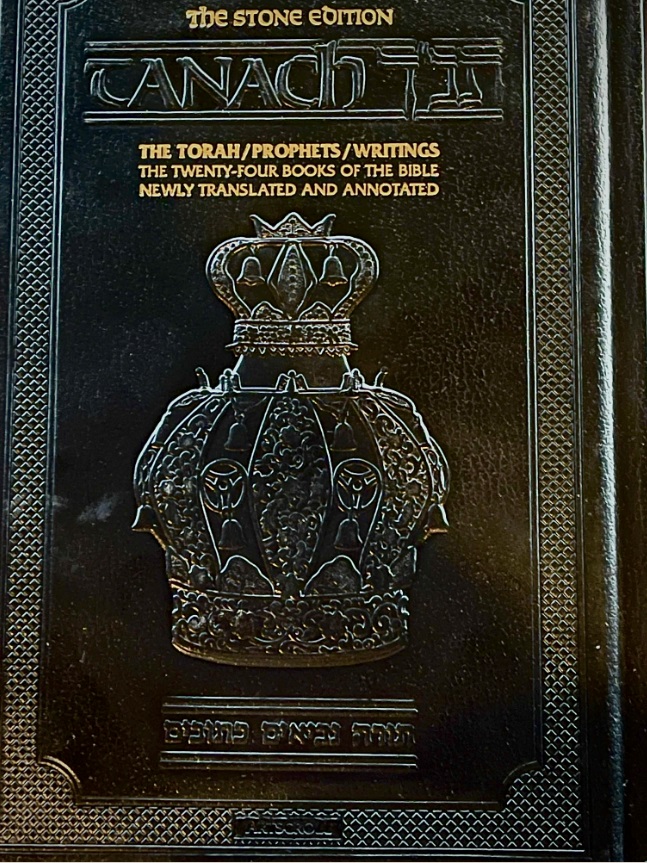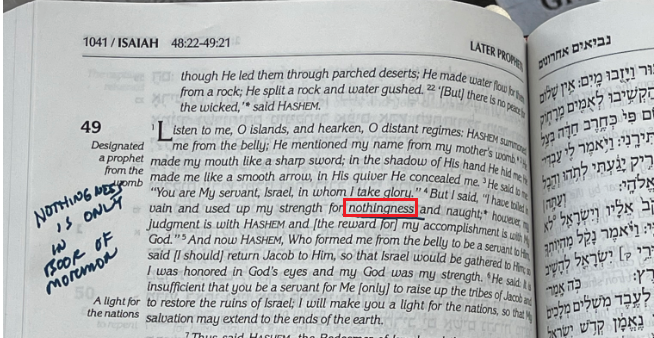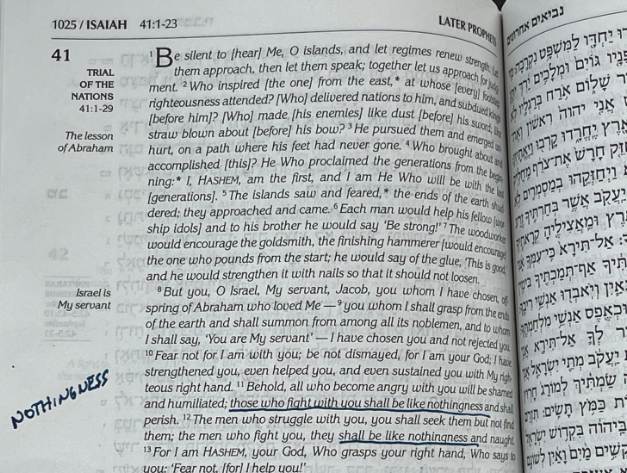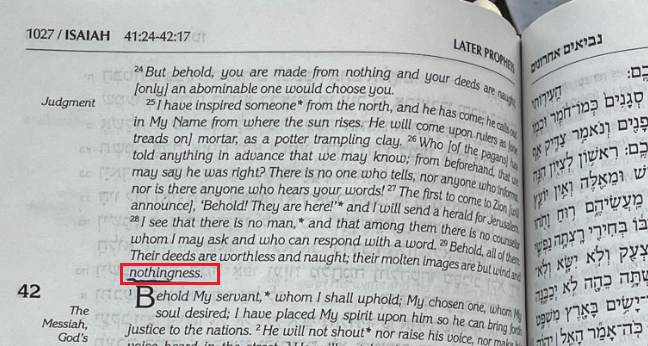Significant Words of the Book of Mormon
English Words Verify Hebrew Authenticity of The Book of Mormon
Nothingness
The Book of Mormon uses a little used English word--'Nothingness'--but 'Nothingness' is perfect Hebrew.
The word 'nothing' is a common word in English. The word 'nothingness' is uncommon and fits awkwardly into English speech. Moreover, the word 'nothingness' never appears in the King James bible or any English bibles like it. If one were forging scripture, would it be a risk to include a word like nothingness, a word not preffered in English, and excluded from the King James bible? English speakers would likely use 'emptiness' or 'void' rather than 'nothingness.' But the word 'nothingness' is used within the Book of Mormon, which begs a question: why include a word in the Book of Mormon that doesn't appear in an English Bible? Nothingness appears three times in the Book of Mormon:Mosiah 2:8
"For behold, that if the knowledge of the goodness of God at this time hath awakened you to a sense of your nothingness and your worthlessness and fallen state,
Mosiah 2:20
Even so, I would that ye should remember and always retain in remembrance the greatness of God and your own nothingness
and His goodness and longsuffering toward you unworthy creatures;
Helaman 4:57
O how great is the nothingness of the children of men!
Yea, even they are less than the dust of the earth;

King James Bible, Isaiah 49:4
Then I said, I have laboured in vain, I have spent my strength for nought, and in vain: yet surely my judgment is with the LORD, and my work with my God.
But Stone's Tanach Jewish Bible translates the Hebrew using 'nothingness:'
Stones Tanach, Isaiah 49:4
But I said, I have toiled in vain
and used up my strength for nothingness and naught;...

King James Isaiah 41:11-12
Behold, all they that were incensed against thee shall be ashamed and confounded:
they shall be as nothing; and they that strive with thee shall perish.
Thou shalt seek them, and shalt not find them, even them that contended with thee:
they that war against thee shall be as nothing, and as a thing of nought.
Stone's Tanach Jewish Bible translates the Hebrew using 'nothingness:' (notice better Hebrew Parallelism in Stone's translation vs King James) Stones Tanach Isaiah 41:11-12
Behold, all who become angry with you will be shamed and humiliated;
those who fight with you shall be like nothingness and shall perish.
The men who struggle with you, you shall seek them but not find them;
the men who fight you, they shall be like nothingness and naught.

King James: Isaiah 41:29
Behold, they are all vanity; their works are nothing: their molten images are wind and confusion.
Stones Tanach Isaiah 41:29
Behold all of them: their deeds are worthless and naught; their molten images are but wind and nothingness."

Part of Speech: Noun Masculine
Transliteration: belimah
Phonetic Spelling: (bel-ee-mah')
Definition: nothingness
from beli and mah
Definition: nothingness
NASB Translation
nothing (1).
Job 26:7
HEB: אֶ֝֗רֶץ עַל־ בְּלִי־ מָֽה׃
NAS: And hangs the earth on nothing.
KJV: [and] hangeth the earth upon nothing.
INT: the earth over nothing
He spreads out the northern skies over empty space; he suspends the earth over nothing.
New Living Translation
God stretches the northern sky over empty space and hangs the earth on nothing.
English Standard Version
He stretches out the north over the void and hangs the earth on nothing.
Berean Study Bible
He stretches out the north over empty space; He hangs the earth upon nothing.
New American Standard Bible
"He stretches out the north over empty space And hangs the earth on nothing.
New King James Version
He stretches out the north over empty space; He hangs the earth on nothing.
King James Bible
He stretcheth out the north over the empty place, and hangeth the earth upon nothing.
Christian Standard Bible
He stretches the northern skies over empty space; he hangs the earth on nothing.
Contemporary English Version
who hung the northern sky and suspended the earth on empty space.
Good News Translation
God stretched out the northern sky and hung the earth in empty space.
Holman Christian Standard Bible
He stretches the northern skies over empty space; He hangs the earth on nothing.
International Standard Version
He spreads out the north over empty space, suspending the earth over nothing.
NET Bible
He spreads out the northern skies over empty space; he suspends the earth on nothing.
New Heart English Bible
He stretches out the north over empty space, and hangs the earth on nothing.
A Faithful Version
He stretches out the north over the empty space, and He hung the earth on nothing.
GOD'S WORD® Translation
"He stretches out his heavens over empty space. He hangs the earth on nothing whatsoever.
JPS Tanakh 1917
He stretcheth out the north over the empty space, And hangeth the earth over nothing.
New American Standard 1977
“He stretches out the north over empty space, And hangs the earth on nothing.
King James 2000 Bible
He stretches out the north over the empty place, and hangs the earth upon nothing.
American King James Version
He stretches out the north over the empty place, and hangs the earth on nothing.
American Standard Version
He stretcheth out the north over empty space, And hangeth the earth upon nothing.
Brenton Septuagint Translation
He stretches out the north wind upon nothing, and he upon nothing hangs the earth;
Douay-Rheims Bible
He stretched out the north over the empty space, and hangeth the earth upon nothing.
Darby Bible Translation
He stretcheth out the north over empty space, he hangeth the earth upon nothing;
English Revised Version
He stretcheth out the north over empty space, and hangeth the earth upon nothing.
Webster's Bible Translation
He stretcheth out the north over the empty place, and hangeth the earth upon nothing.
World English Bible
He stretches out the north over empty space, and hangs the earth on nothing.
Young's Literal Translation
Stretching out the north over desolation, Hanging the earth upon nothing.
